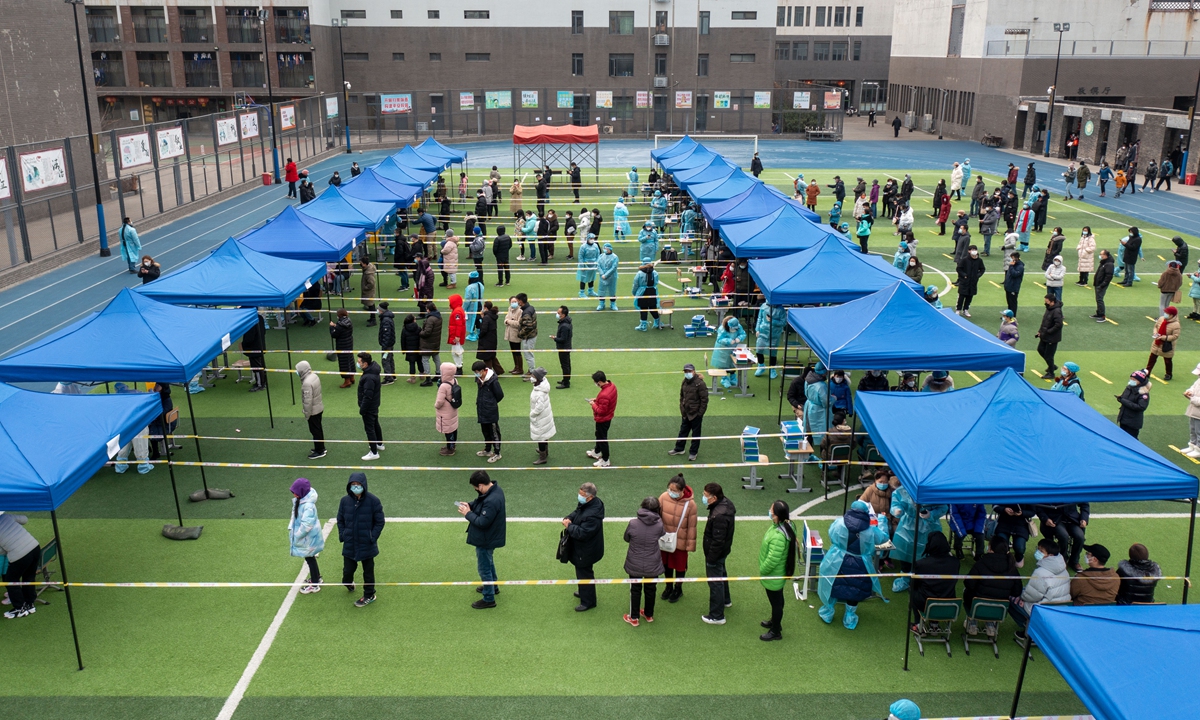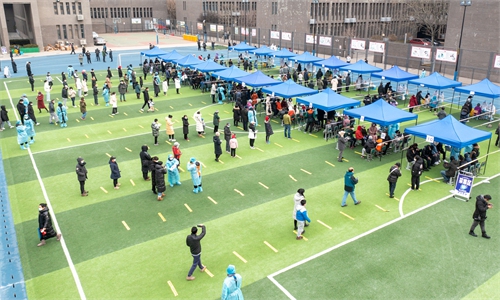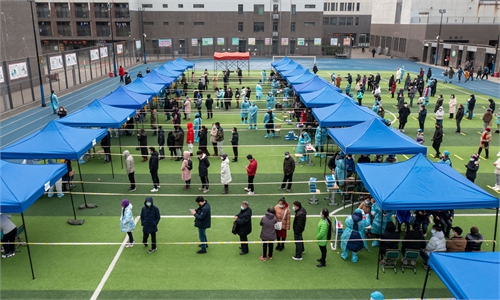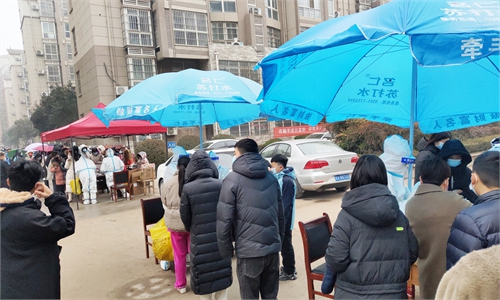
Residents take nucleic acid tests in Tianjin on January 9, 2022. Photo: VCG
North China's Tianjin Municipality is striving to quickly block local community transmission of COVID-19 amid the spread of Omicron, a top Chinese expert said in an interview with media.
The first step is to quickly block local community transmission outside COVID-19 control regions, said Zhang Boli, an academician from the Chinese Academy of Engineering and head of the Tianjin University of Traditional Chinese Medicine (TCM). From January 8 to Sunday, a total of 294 confirmed local cases were reported in Tianjin. A total of 22 asymptomatic cases have been reported, the local authorities said on Monday.
"This round of outbreak will be under control generally when there are no new patients within the regions that are under control and no infections are found in the isolation sites," Zhang said, noting that he believed the goal will be reached in a few days, as development and treatment are progressing better than expected.
The work of tracing the source of this outbreak in Tianjin is still in progress, and there would be a risk in future prevention and control as Omicron hides well and is very contagious, Zhang said.
"Don't treat the Omicron variant of COVID-19 like the flu," Zhang stressed, noting that Omicron is different from the flu, and patients with no symptoms after being discharged from hospital could show symptoms after several months. Zhang explained it's still unclear as the Omicron variant has only been known for three months, suggesting patients receive treatment and take medicine in a timely manner.
Zhang noted that generally patients' symptoms are lighter than previous cases, and there have so far been no severe cases.
The variant's symptoms include sore throat, low fever and cough. Compared with people infected by the Delta variant, symptoms of Omicron are lighter and the effect of treatment is better, Zhang pointed out.
In China, asymptomatic carriers are also required to stay in hospital. "We encourage asymptomatic carriers to take preventive Chinese medicine," as some overseas reports have indicated that silent carriers and patients with even slight symptoms will also have after-effects later, Zhang said.
Omicron infections have spread from Tianjin to other regions such as Central China's Henan Province. Zhang suggested all students studying in Tianjin who have returned to their hometown report their whereabouts and take nucleic acid tests and self-quarantine.



